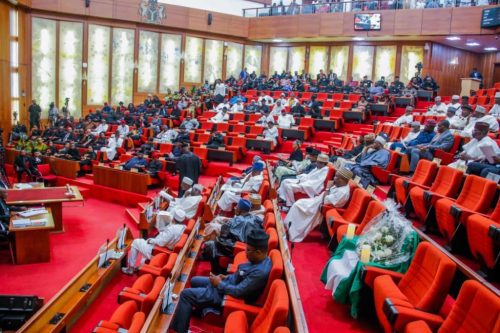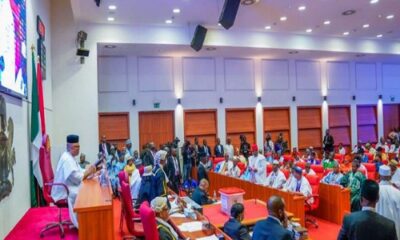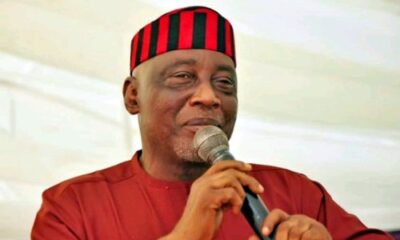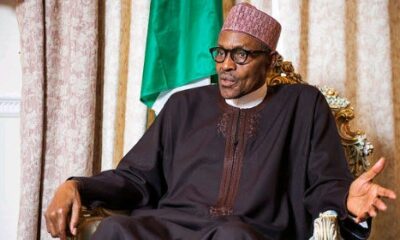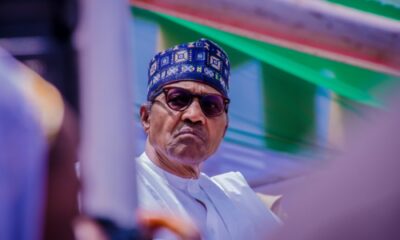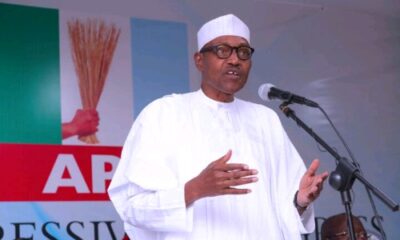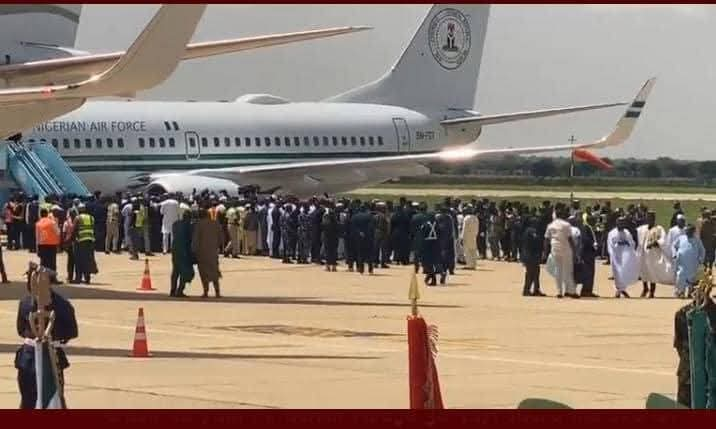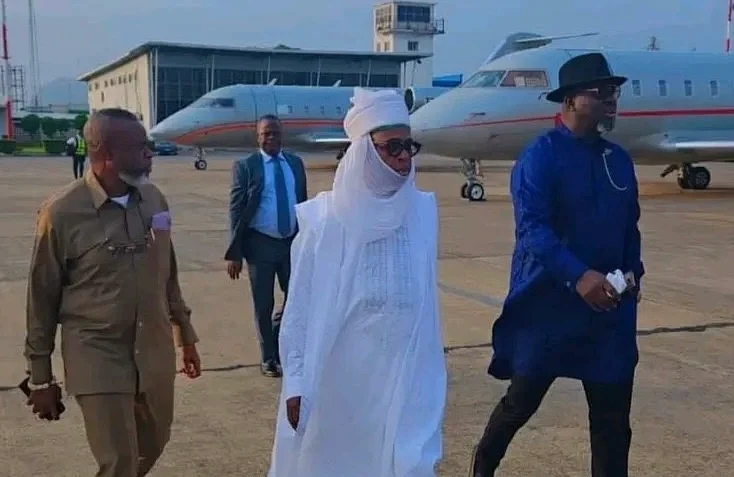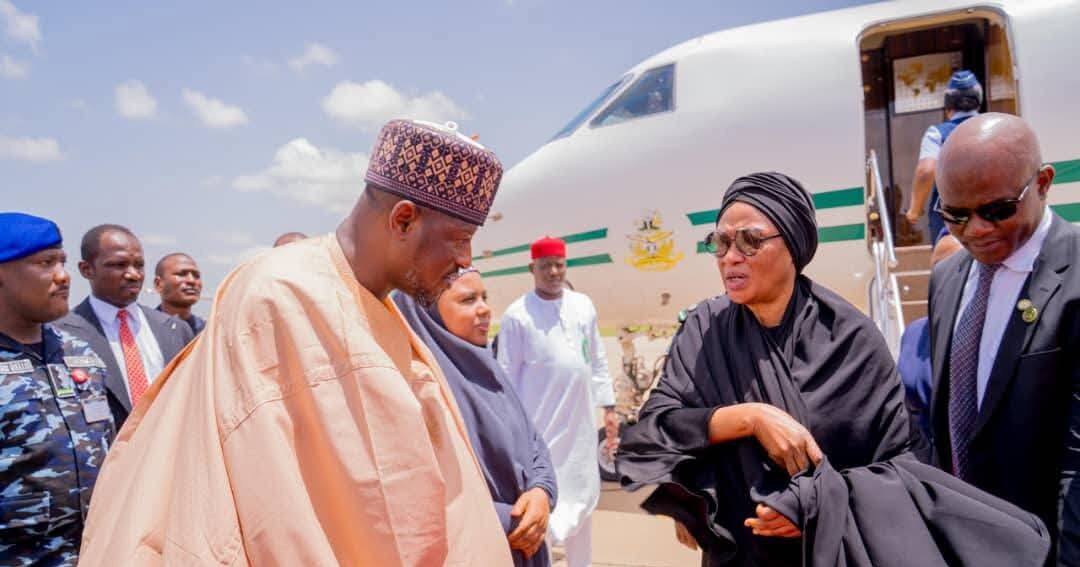Both the Senate and the House of Representatives had suspended action on the bill till resumption on Tuesday, after the Christmas and New Year break.
On Wednesday, the House of Representatives amended Clause Section 87 of the Electoral Act 2010 which is Clause 84 of the electoral bill, by inserting the indirect primary option.
The Senate, however, adopted Clause 84(2) as recommended by the Committee of the Whole and approved direct primary, indirect primary or consensus as the procedure for the nomination of candidates by political parties for elections.
The disagreement between both houses is expected to delay the passage of the bill.
The Senate also approved the recommended Clause 84(3) which prescribes that “A political party that adopts the direct primaries procedure shall ensure that all aspirants are given equal opportunity of being voted for by members of the party and shall adopt the procedure outlined below: (a) In the case of Presidential Primaries, all registered members of the party are to vote for aspirants of their choice at a designated centre at each ward of the federation.
It provides further that, “similar procedure as in (a) above, shall be adopted for governorship senatorial, federal and state constituencies.
The Majority Leader of the Senate, Yahaya Abdullahi (APC/Kebbi-North), had moved a motion for the recommittal of the bill to the Committee of the Whole.
Abdullahi noted that the motion was against the backdrop of the “need to address the observation by Mr President and make necessary amendment in accordance with Order 87(c) of the Senate Standing Orders, 2022 (as amended); and relying on order 1(b) and 52(6) of the Senate Standing Orders, 2022 ( as amended).”
The Senate’s move, it was learnt, was based on the request by the President
However, it was not a smooth ride for the bill at the House. There was tension in the House as members were divided on whether to amend the legislation or override the President’s vote.
At the opening of plenary on Wednesday, the Speaker, Femi Gbajabiamila, beckoned on some leaders of the House, who approached his seat.
Shortly after, other leaders and ranking members of the House joined the meeting.
Those who met with Gbajabiamila included the Deputy Speaker, Ahmed Wase; Majority Leader, Alhassan Ado-Doguwa; Minority Leader, Ndudi Elumelu; Chairman, House Committee on Finance, James Faleke; Chairman, House Committee on Defence, Babajimi Benson, among others.
Other lawmakers watched as they engaged themselves in arguments for over 15 minutes.
Our correspondent observed that Elumelu was particularly in disagreement with what was being said by others at the meeting.
Gbajabiamila consequently called for an executive (closed-door) session, which lasted about 30 minutes.
As the chamber was opened, there was noise in the chamber, which showed that there was a disagreement among the lawmakers.
Elumelu and the Deputy Minority Leader, Toby Okechukwu, led other opposition members to a corner of the chamber where they met for about five minutes, agreed on what to do and dispersed to their respective seats.
As the Speaker called the chamber to order, he asked that all items on the day’s order paper be stepped down except the recommittal of the electoral bill – Item 6, being the first motion of the day; and Item 9, being the first report for consideration.
Chairman of the House Committee on Rules and Business, Abubakar Fulata, moved the motion for the recommittal to the Committee of the Whole. Elumelu seconded the motion.
Ado-Doguwa moved the motion that the House dissolve into Committee of the Whole to consider the bill, while Leke Abejide seconded the motion.
At the Committee of the Whole, consideration of the bill did not start until 18 minutes, during which the lawmakers conferred with themselves in groups and copies of the legislation were distributed to them.
The Speaker recalled how Buhari withheld assent to the bill, read out Paragraph 5 of the President’s letter to the National Assembly. Gbajabiamila also cited Order 12 Rule 20 of the Standing Orders of the House which prescribed how the lawmakers should go about rejected bills.
Considering the report by the Committee of the Whole, Gbajabiamila put the amended Clause 84(2) to voice vote and it was unanimously adopted.
The clause now reads, ‘The procedure for nomination of candidates by political parties for various elective positions shall be by direct primaries or indirect primaries.’
As the House was to revert to plenary, an opposition member, Dagomie Abiante (PDP/Rivers) raised a point of order to say that “there are other errors,” which Gbajabiamila said were “being looked into.”
The Speaker, however, ruled him out of order, stating that the rules of the House, which he had read out, were specific about the process and the lawmakers were bound by the limitations. “We are confined to the observations made by Mr President. We have a near-perfect document; it may not be perfect but we have a near-perfect document,” he stated.
After Gbajabiamila overruled Abiante, several lawmakers approached the Speaker where they were seen pointing out things in the bill to him.
We amended only Clause 84(2) – Gbajabiamila
After the meeting that lasted about 10 minutes, the House adopted the report from the Committee of the Whole.
The Speaker explained what had been done to the bill, saying, “For emphasis’ sake, I need to state categorically that what was considered and adopted by the House was only a clause and that was Clause 84(2). “
Chairman of the House Committee on Media and Public Affairs, Benjamin Kalu, who addressed journalists after the session, stated that Buhari was specific about the amendments he sought from the National Assembly, which was having direct and indirect options.
Consensus will subvert popular will, antithetical to democratic principles – CSOs
Meanwhile, a coalition of civil society organisations working towards the perfection of the electoral process in Nigeria on Wednesday rejected the introduction of consensus by the Senate as a mode of nomination of candidates in the Electoral. Act Bill 2021.
The activists, however, commended the swift action taken by the National Assembly upon resumption to review its position on direct primaries as the sole mode for the nomination of candidates in the Electoral Bill 2021.
While expressing fears that the new consensus mode “is antithetical to democratic principles and will result in the subversion of popular will”, the CSOs called for “the immediate withdrawal of this new introduction which is alien to the original Electoral Bill 2021 to speed up the work of the harmonization committee and conclusion of the amendment process on or before the 21 January 2022 deadline.”
The membership of the CSOs comprised Yiaga Africa, International Press Centre, Centre for Citizens with Disability, The Albino Foundation, CLEEN Foundation, Institute for Media and Society and Nigerian Women Trust Fund.
Others were Premium Times Centre for Investigative Journalism, Partners for Electoral Reform, Civil Society Legislative Advocacy Centre, Women Advocates Research and Documentation Centre, Nigeria Network of Non-Governmental Organizations and Inclusive Friends Association.
The groups in a joint statement signed on their behalf by the Executive Director of Yiaga Africa, Samson Itodo, rejected the action taken by the Senate.
The statement read in part, “We reject the decision of the Senate to introduce a completely new mode of ‘consensus’ as a procedure for candidates’ nomination. The consensus model is antithetical to democratic principles and will result in the subversion of popular will. Furthermore, it violates the rights of aspirants to equal participation in party primaries and limits the choice of voters to candidates who did not emerge from democratic primary elections.
“Judging from experience, the consensus has occasioned a litany of litigation in Nigeria’s electoral process. We call on the Senate to, in line with the popular will of Nigerians, adopt the position of the House of Representatives which now recognizes direct and indirect primaries as the procedure for nomination of candidates.”
The groups said the divergent positions of both chambers could delay the speedy conclusion of the process.
“We, therefore, call for the immediate withdrawal of this new introduction which is alien to the original Electoral Bill 2021 to speed up the work of the harmonization committee and conclusion of the amendment process on or before the 21 January 2022 deadline,” the CSOs said.

 BIG STORY4 days ago
BIG STORY4 days ago
 BIG STORY5 days ago
BIG STORY5 days ago
 BIG STORY1 day ago
BIG STORY1 day ago
 BIG STORY5 days ago
BIG STORY5 days ago
 BIG STORY5 days ago
BIG STORY5 days ago
 BIG STORY11 hours ago
BIG STORY11 hours ago
 BIG STORY2 days ago
BIG STORY2 days ago
 BIG STORY3 days ago
BIG STORY3 days ago




